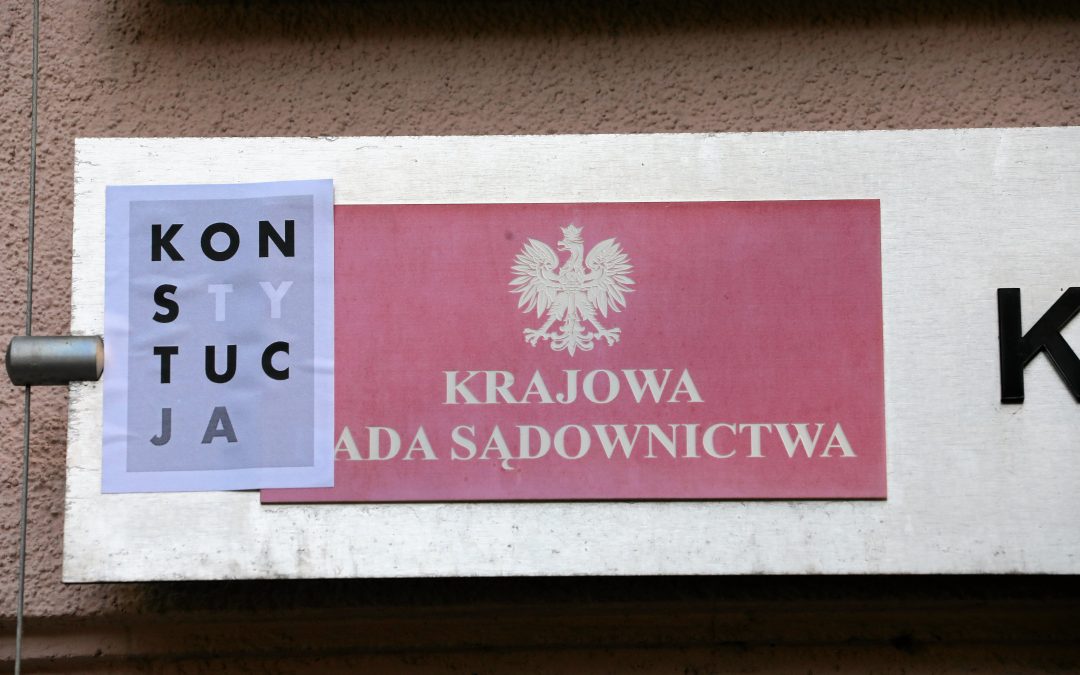The body responsible for nominating judges in Poland no longer matches the institution enshrined in the constitution due to changes made by the government, which increased political influence over the body, the Supreme Court found today.
In 2017-18, the National Council of the Judiciary (KRS) was reconstituted as part of the ruling Law and Justice (PiS) party’s overhaul of the judiciary. Its members, previously chosen mainly by judges themselves, are now nominated mostly by politicians.
As a result, the European Court of Human Rights last year ruled that the new KRS is “unduly influenced by legislative and executive powers”. Poland became the first country ever to be expelled from the European Network of Councils for the Judiciary, which said the new KRS “does not safeguard the independence of the judiciary”.
Today, a seven-member bench of the criminal chamber of the Supreme Court – consisting of judges nominated before the overhaul of the KRS – found that the council is “a new body that is not identical to the one enshrined in the constitution”, reports the Polish Press Agency (PAP).
“Only the name” has remained the same, wrote judge Jerzy Grubba in a justification for the resolution. Its “members are [now] elected in a different way than should result from the correct understanding of the constitutional provision”.
Any appointment under these conditions is flawed, Grubba wrote. However, he added that it cannot be said a priori that each of over 2,000 judges nominated by the new KRS does not meet the minimum standard of impartiality.
[THREAD] Today, the Criminal Chamber of Poland's Supreme Court has responded to a question of law regarding the legal consequences of involvement of individuals nominated by the sham NCJ in a court panel (case I KZP 2/22). 1/n ⬇️ pic.twitter.com/RvYOshRC95
— Patryk Wachowiec (@Patryk_1234567) June 2, 2022
The Supreme Court has itself previously ruled, in 2019, that the new KRS is “not an impartial and independent body”. In a further ruling this year, the European Court of Human Rights again found that the council does “not provide sufficient guarantees of independence from the legislative or executive powers”.
Poland’s government, however, rejects claims that the KRS is under political control. It also argues that in other European Union countries politicians do have influence over the selection of judges yet they have not faced the same kind of criticism as Poland.
A wide variety of domestic and international institutions and expert bodies have found the Polish government’s judicial policies – including the changes to the KRS – to undermine the rule of law and, in some cases, to violate the Polish constitution and European law.
Main photo credit: Fot. Sławomir Kamiński / Agencja Wyborcza.pl

Alicja Ptak is deputy editor-in-chief of Notes from Poland and a multimedia journalist. She has written for Clean Energy Wire and The Times, and she hosts her own podcast, The Warsaw Wire, on Poland’s economy and energy sector. She previously worked for Reuters.




















